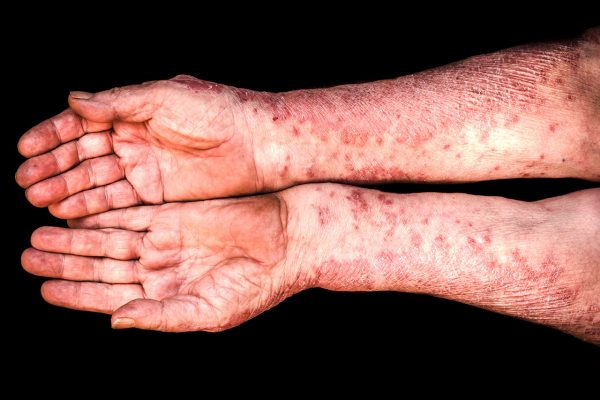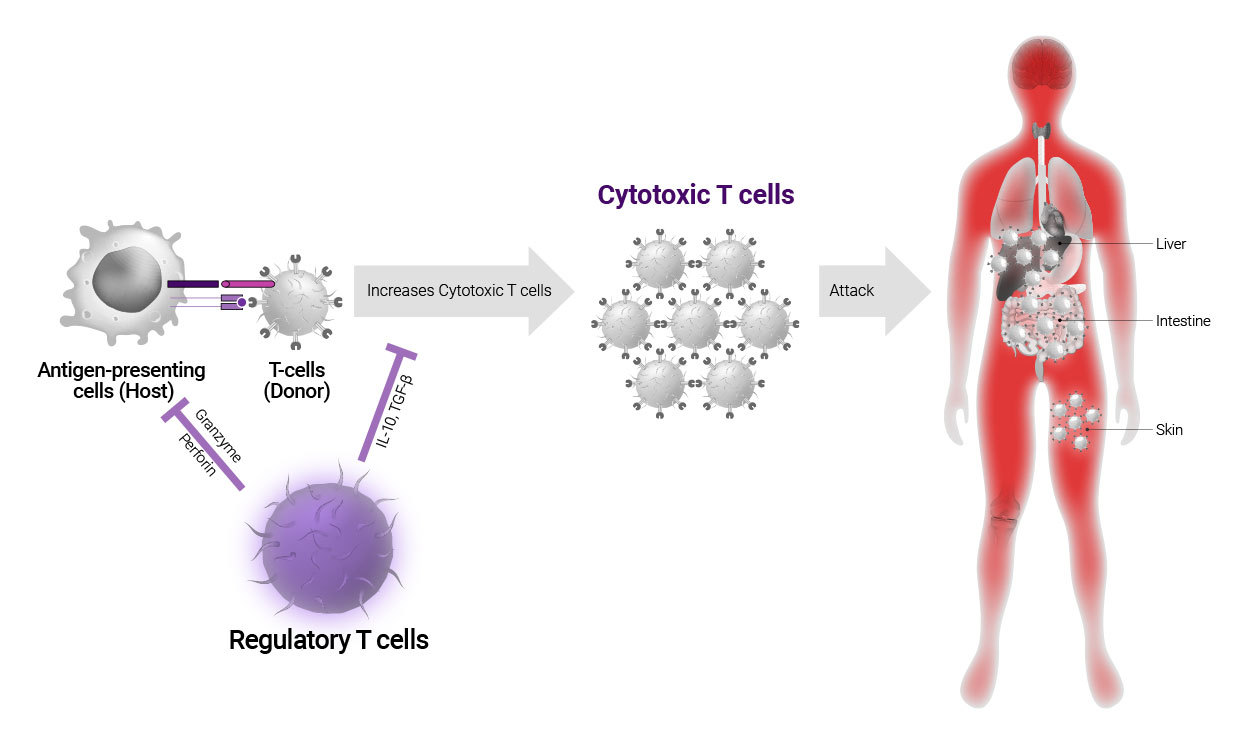Research Information


Graft versus Host Disease
Graft versus Host Disease (GvHD) is a disease that causes fatal complication on primary parts of the body, as healthy lymphocytes (primarily caused by T lymphocytes from host) transplanted during hematopoietic stem cell transplantation recognize and attack the cells of the immunocompromised host (the body of the transfusion recipient) as foreign.
Two types, acute and chronic GvHD, are known to arise post-transplant. Acute GvHD manifests within 3 months of transplant and causes fever, rashes, liver failure and diarrhea. Chronic GvHD normally exhibits more than 3 months after the transfusion, and symptoms akin to autoimmune disease show in all organs of the body including skin, joints, and cornea. While mild symptoms may be controlled with immuno-suppressive drugs and steroids, the prognosis can range from secondary inflammations and death due to organ failures in case the condition does not respond to ordinary courses of treatment. It can be life-threatening.
Therefore, during the transplantation of allogeneic hematopoietic stem cells, all patients receive immuno-suppressive drugs as a precaution to suppress the inherent risk of the prevalence of GvHD. However, the secondary side effects from long-term use of immuno-suppressive drugs may affect the prognosis of hematopoietic stem cell transplantation. Hence, it is imperative to develop preventive and remedial medications that can substitute the current regimen.
Role of Regulatory T-cells in the context of Graft versus Host Disease
Graft versus Host Disease emerges as T cells of the healthy donor during hematopoietic stem cell transplantation cause excessive immune response due to redundant secretion of IL-2 and IFNγ, inflammatory cytokines with the immune responses attacking tissues of the host (patient) including intestine, skin, and liver. IMMUNIQUE intends to provide preventive and remedial care by Treg cells suppressing the reproduction and activation of cytotoxic T cells that have been overactive.


